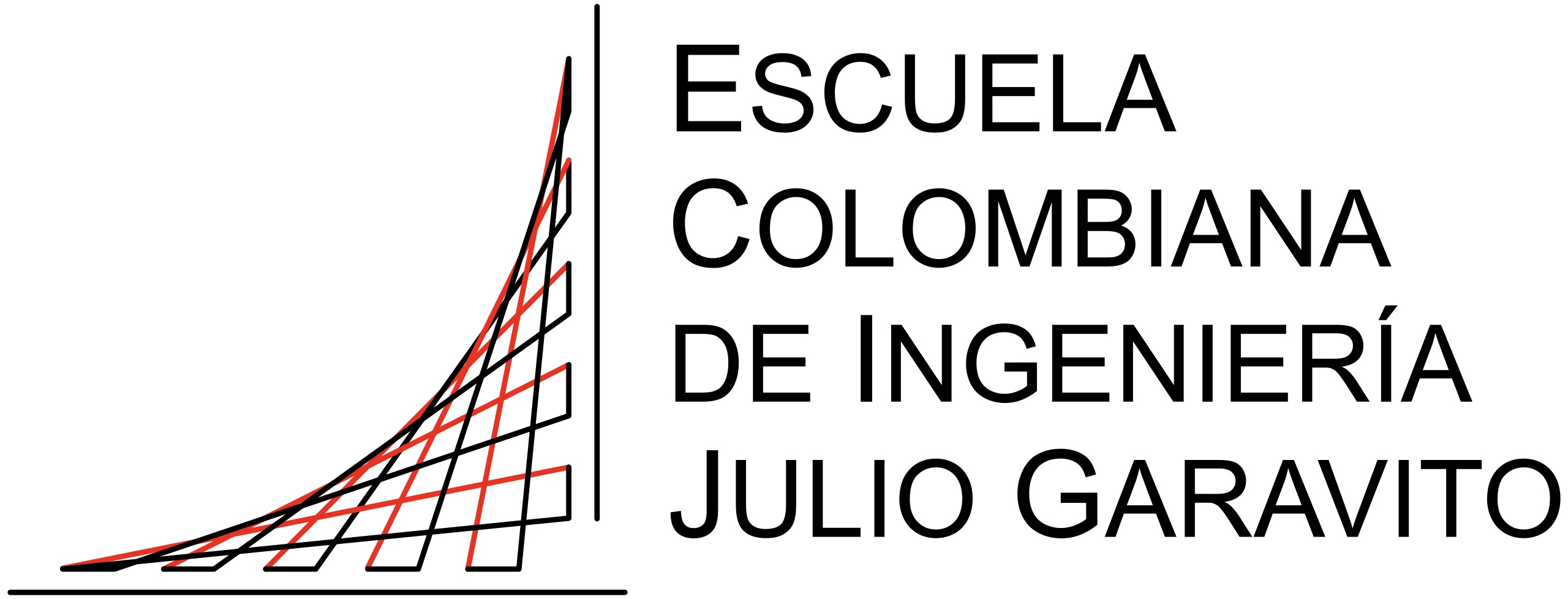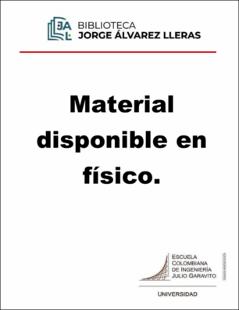Mostrar el registro sencillo del ítem
El modelo propio: teorías económicas e instrumentos
| dc.contributor.author | Sarmiento Palacio, Eduardo | |
| dc.date.accessioned | 2024-04-16T23:14:40Z | |
| dc.date.available | 2024-04-16T23:14:40Z | |
| dc.date.issued | 2013 | |
| dc.identifier.isbn | 9789588726083 | spa |
| dc.identifier.uri | https://repositorio.escuelaing.edu.co/handle/001/2975 | |
| dc.description.abstract | Diez años después, se presenta la segunda edición de este libro que ha marcado un momento decisivo acerca de la validez y aplicación de la ciencia económica, en particular la teoría neoclásica que ha dominado el pensamiento económico occidental. En palabras de su autor, no existe otra obra tan extensa que manifieste en forma tan persistente y continuada la inconformidad con el modelo angloamericano. El análisis de El modelo propio se dirige en forma concreta a la validez de los principios fundamentales que sirvieron de base para el modelo y la inconveniencia en las instituciones que indujeron: la ley de Say, la neutralidad del dinero, la ventaja comparativa, el crecimiento inducido por la oferta y la distribución del ingreso como simple problema de transferencias. Las críticas sobre el mal desempeño de las economías y la incapacidad de superarlas son similares a las que hoy en día presentan los premios Nobel y distinguidos economistas que dominan el debate mundial. Pero a diferencia de Sarmiento, no profundizan sobre las causas ni las soluciones específicas; no van más allá de señalar las dolencias. En la práctica se limitan a ofrecer rescates a los países en crisis, aumentar la emisión monetaria y aplicar estímulos fiscales temporales. En la segunda edición, una vez más, el autor asegura que si el país hubiera adoptado la teoría y el modelo propuestos en su obra en 2002, hoy el ingreso per cápita sería muy superior. "Decir que la globalización es buena y que el mercado, el medio que la materializa, es malo, es un contrasentido económico. El germen del error está en el principio de la ventaja comparativa, que proclama a viva voz que los bienes se deben producir en los lugares que los realizan a menor costo". Este principio ha sido altamente nocivo: el resultado ha sido una deficiencia de demanda efectiva que impide el crecimiento, reduce la participación de los ingresos laborales en el producto nacional y deteriora la distribución del ingreso.Las críticas sobre el mal desempeño de las economías y la incapacidad de superarlas son similares a las que hoy en día presentan los premios Nobel y distinguidos economistas que dominan el debate mundial. Pero a diferencia de Sarmiento, no profundizan sobre las causas ni las soluciones específicas; no van más allá de señalar las dolencias. En la práctica se limitan a ofrecer rescates a los países en crisis, aumentar la emisión monetaria y aplicar estímulos fiscales temporales. En la segunda edición, una vez más, el autor asegura que si el país hubiera adoptado la teoría y el modelo propuestos en su obra en 2002, hoy el ingreso per cápita sería muy superior. "Decir que la globalización es buena y que el mercado, el medio que la materializa, es malo, es un contrasentido económico. El germen del error está en el principio de la ventaja comparativa, que proclama a viva voz que los bienes se deben producir en los lugares que los realizan a menor costo". Este principio ha sido altamente nocivo: el resultado ha sido una deficiencia de demanda efectiva que impide el crecimiento, reduce la participación de los ingresos laborales en el producto nacional y deteriora la distribución del ingreso.En la segunda edición, una vez más, el autor asegura que si el país hubiera adoptado la teoría y el modelo propuestos en su obra en 2002, hoy el ingreso per cápita sería muy superior. "Decir que la globalización es buena y que el mercado, el medio que la materializa, es malo, es un contrasentido económico. El germen del error está en el principio de la ventaja comparativa, que proclama a viva voz que los bienes se deben producir en los lugares que los realizan a menor costo". Este principio ha sido altamente nocivo: el resultado ha sido una deficiencia de demanda efectiva que impide el crecimiento, reduce la participación de los ingresos laborales en el producto nacional y deteriora la distribución del ingreso. | spa |
| dc.description.abstract | Ten years later, the second edition of this book is presented, which has marked a decisive moment regarding the validity and application of economic science, particularly the neoclassical theory that has dominated Western economic thought. In the words of its author, there is no other work so extensive that manifests in such a persistent and continuous manner the dissatisfaction with the Anglo-American model. The analysis of The Own Model is specifically directed at the validity of the fundamental principles that served as the basis for the model and the inconvenience of the institutions that induced: Say's law, the neutrality of money, comparative advantage, growth induced by the supply and distribution of income as a simple transfer problem. Criticisms about the poor performance of economies and the inability to overcome them are similar to those presented today by Nobel Prize winners and distinguished economists who dominate the global debate. But unlike Sarmiento, they do not delve into the causes or specific solutions; They do not go beyond pointing out the ailments. In practice they limit themselves to offering bailouts to countries in crisis, increasing monetary issuance and applying temporary fiscal stimuli. In the second edition, once again, the author assures that if the country had adopted the theory and model proposed in his work in 2002, today the per capita income would be much higher. "To say that globalization is good and that the market, the medium that materializes it, is bad, is an economic contradiction. The germ of the error is in the principle of comparative advantage, which loudly proclaims that goods must be produced in the places that do them at the lowest cost. This principle has been highly harmful: the result has been a deficiency in effective demand that impedes growth, reduces the share of labor income in the national product and deteriorates income distribution. Criticisms about the poor performance of economies and inability to overcome them are similar to those presented today by the Nobel Prize winners and distinguished economists who dominate the world debate. But unlike Sarmiento, they do not delve into the causes or specific solutions; They do not go beyond pointing out the ailments. In practice they limit themselves to offering bailouts to countries in crisis, increasing monetary issuance and applying temporary fiscal stimuli. In the second edition, once again, the author assures that if the country had adopted the theory and model proposed in his work in 2002, today the per capita income would be much higher. "To say that globalization is good and that the market, the medium that materializes it, is bad, is an economic contradiction. The germ of the error is in the principle of comparative advantage, which loudly proclaims that goods must be produced in the places that do them at the lowest cost. This principle has been highly harmful: the result has been a deficiency in effective demand that impedes growth, reduces the share of labor income in the national product and deteriorates income distribution. In the second edition, once again, the author He assures that if the country had adopted the theory and model proposed in his work in 2002, today the per capita income would be much higher. "To say that globalization is good and that the market, the medium that materializes it, is bad, is an economic contradiction. The germ of the error is in the principle of comparative advantage, which loudly proclaims that goods must be produced in the places that do them at the lowest cost. This principle has been highly harmful: the result has been a deficiency in effective demand that impedes growth, reduces the share of labor income in the national product and deteriorates income distribution. | eng |
| dc.format.extent | 456 páginas | spa |
| dc.format.mimetype | application/pdf | spa |
| dc.language.iso | spa | spa |
| dc.publisher | Universidad Escuela Colombiana de Ingeniería Julio Garavito | spa |
| dc.source | https://catalogo.escuelaing.edu.co/cgi-bin/koha/opac-detail.pl?biblionumber=13337&query_desc=ti%2Cwrdl%3A%20El%20Modelo%20Propio%20Teorias%20Economicas%20E%20Instrumentos | spa |
| dc.title | El modelo propio: teorías económicas e instrumentos | spa |
| dc.type | Libro | spa |
| dc.type.version | info:eu-repo/semantics/publishedVersion | spa |
| oaire.accessrights | http://purl.org/coar/access_right/c_abf2 | spa |
| oaire.version | http://purl.org/coar/version/c_970fb48d4fbd8a85 | spa |
| dc.contributor.researchgroup | Centro de Estudios Económicos | spa |
| dc.description.edition | 2th.ed. | spa |
| dc.identifier.instname | Universidad Escuela Colombiana de Ingeniería Julio Garavito | spa |
| dc.identifier.reponame | Repositorio Digital | spa |
| dc.identifier.repourl | https://repositorio.escuelaing.edu.co/ | spa |
| dc.identifier.url | https://catalogo.escuelaing.edu.co/cgi-bin/koha/opac-detail.pl?biblionumber=13337&query_desc=ti%2Cwrdl%3A%20El%20Modelo%20Propio%20Teorias%20Economicas%20E%20Instrumentos | |
| dc.publisher.place | Bogotá (Colombia) | spa |
| dc.rights.accessrights | info:eu-repo/semantics/openAccess | spa |
| dc.subject.armarc | OFERTA Y DEMANDA | |
| dc.subject.armarc | AHORRO | |
| dc.subject.armarc | COMERCIO INTERNACIONAL | |
| dc.subject.armarc | CRECIMIENTO ECONÓMICO -- COLOMBIA | |
| dc.subject.armarc | TEORÍA ECONÓMICA | |
| dc.subject.armarc | MODELOS ECONÓMICOS | |
| dc.subject.armarc | APERTURA ECONÓMICA | |
| dc.subject.armarc | OFFER AND DEMAND | |
| dc.subject.armarc | SAVING | |
| dc.subject.armarc | INTERNATIONAL TRADE | |
| dc.subject.armarc | ECONOMIC GROWTH - COLOMBIA | |
| dc.subject.armarc | ECONOMIC THEORY | |
| dc.subject.armarc | ECONOMIC MODELS | |
| dc.type.coar | http://purl.org/coar/resource_type/c_2f33 | spa |
| dc.type.content | Text | spa |
| dc.type.driver | info:eu-repo/semantics/book | spa |
Ficheros en el ítem
Este ítem aparece en la(s) siguiente(s) colección(ones)
-
AG - Centro de Estudios Económicos [178]
Clasificación: C - Convocatoria 2018










